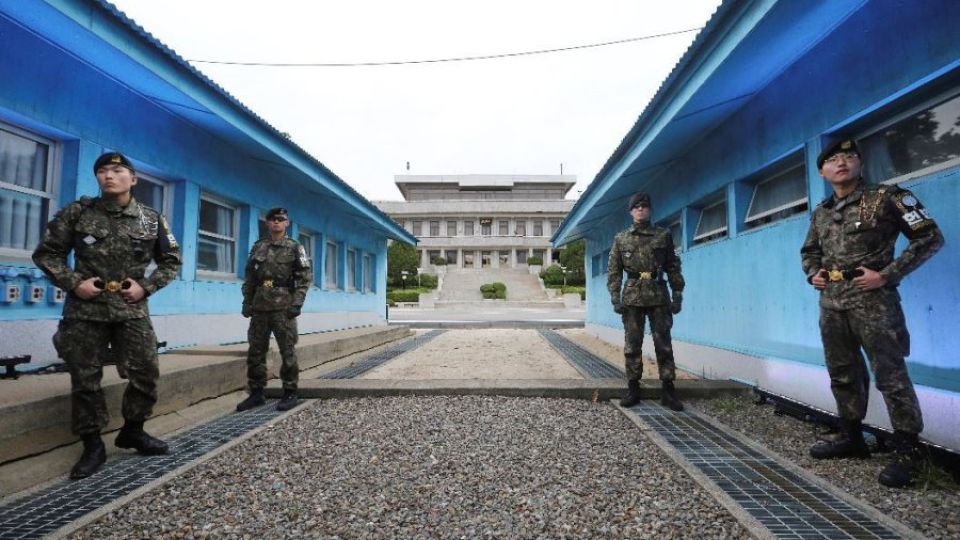June 21, 2023
SEOUL – This year commemorates the 70th anniversary of the truce of the Korean War. Technically, the Korean War has not ended yet, and therefore the Korean people have been living in a state of suspension for the past 70 years. In the eyes of the electronic generation, it is as if the screen were stuck on “pause,” and could resume anytime when someone presses the “play” button again. Strangely, however, many Korean people seem to be oblivious of their precarious situation.
Such ignorance is dangerous and can lull us into a false sense of security. It is therefore of paramount importance that the tragic Korean War must end forever. For that purpose, two things are imperative. One is that we should end the still-ongoing scuffle between the left and the right in South Korea. Foreigners wonder how a country like South Korea, which faces the threat of North Korea directly, could have so many left-wing people.
Experts have pointed out that the Korean War was primarily responsible for fostering pro-North Korea left-wing sentiment in South Korea. According to Cha Yun, Chairman of Chayun Public Relations, among the approximately 900,000 civilian casualties during the Korean War, 300,000 or 400,000 were executed under the charge of being communist collaborators. Some of them might be communist sympathizers, However, others might be innocent victims swept up by the ideological frenzy during the wartime.
Cha writes that the descendants of executed people, who have long harbored grudges and enmities as a family legacy, have naturally become pro-North Korea left-wing people. On the other side of the fence, there are descendants of those who were killed by the communists during the Korean War. Unsurprisingly, they have become anti-North Korea right-wing people. Chairman Cha worries that unless South Koreans put down the past rancor derived from the ideological clash of the 1950s, the Korean War would never end.
In order to end the Korean War permanently, therefore, we should bury the hatchet and stop the chronic ideological warfare in South Korea. This means that we should seek the reconciliation of the left with the right, progressives with conservatives, and Marxists with capitalists. Otherwise, we will be vulnerable to the aggressions of North Korea that has armed itself with nuclear missiles. If divided internally, we are likely to end up conquered by outside forces.
Second, we should have a strong military to defend our country from any foreign aggression. For example, we should have the capability of not only shooting down incoming missiles, but also striking the missile bases even before our enemy launches one. With the help of US nuclear powered submarines and aircraft with cutting-edge technology, we should prove that we are an invincible military power, whether on air, sea, or land. Only then can we end the Korean War for good.
Some people naively believe that simply declaring the end of the war would literally end it. However, this is nothing but hollow rhetoric meant to be used as a pretext to pull out US troops from South Korea, and that is why our enemies want it so badly.
In fact, declaring the end of war does not mean much. War can resume anytime, regardless of the official declaration of the end of war. It is as if you promised not to watch TV anymore, and then turn it on again later.
We should also remember that the situation of Ukraine or Taiwan is strikingly similar to ours. Consider that these two countries are each confronting a claim from a bigger country that they formerly belonged to it. South Korea, too, is likely to face a similar claim by her aggressive neighboring countries, especially if the international community validates such claims on Ukraine and Taiwan. It would therefore be naive and wrong to assume that the crisis in Ukraine and Taiwan has nothing to do with us.
We should also remember that when the Korean War broke out, 21 countries sent troops and medical units to a country most of their citizens had barely heard of.
Thanks to their invaluable and timely help, we were able to overcome unprecedented ordeals and build an affluent country. Likewise, we, too, should help other countries in trouble for humanitarian reasons.
We have the obligation to return the favor we received during and after the Korean War.
We no longer want to live a suspended life under the name of a “truce” that can be shattered at any time. We do not want the hollow declaration of the end of war, either. In order to end the Korea War, we need things that are more substantial.
For that purpose, we should stop ideological battles and political vengeance in our society. We also should build a strong military power so no countries would dare to provoke us. Only then, can we put an end to the Korean War for good.
Kim Seong-kon is a professor emeritus of English at Seoul National University and a visiting scholar at Dartmouth College. The views expressed here are his own. — Ed.


